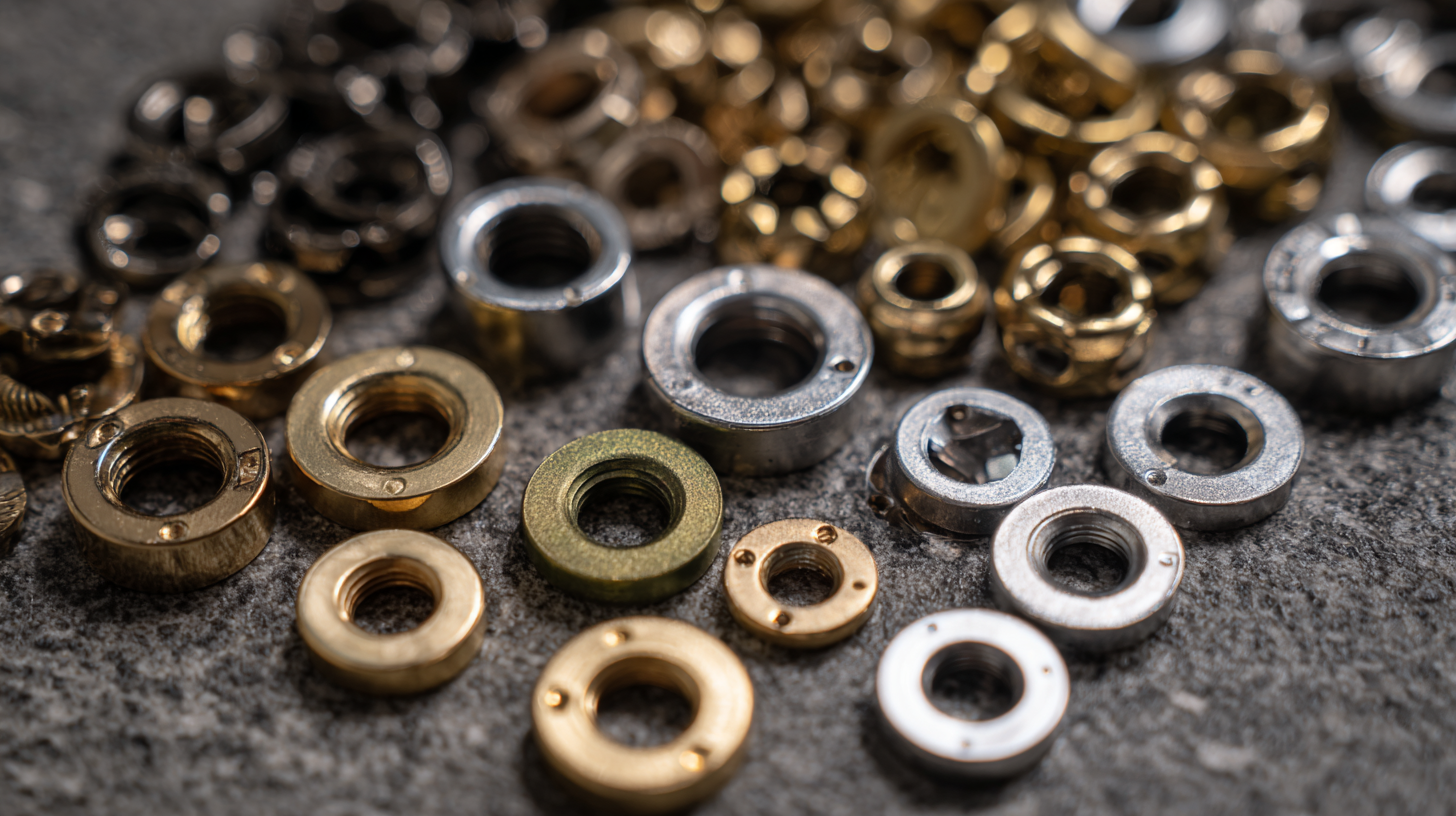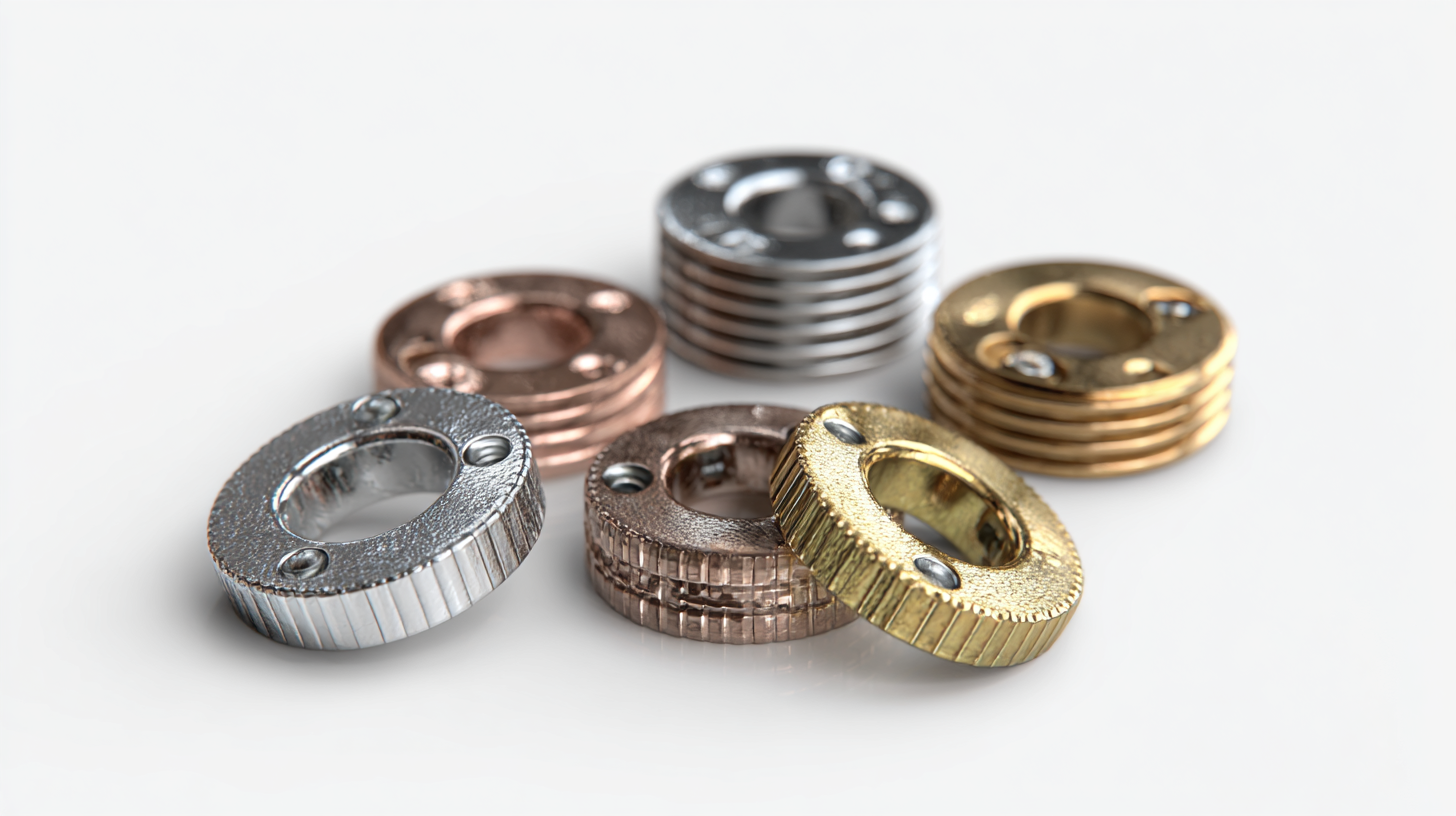In the ever-evolving landscape of engineering and construction, the pursuit of efficiency remains paramount to the success of any project. One often-overlooked component that plays a crucial role in enhancing the performance and longevity of fastened joints is the lock washer. These small yet mighty devices are designed to prevent loosening in high-vibration environments, ensuring that mechanical assemblies maintain their integrity under extreme conditions.

By incorporating the best lock washers into your projects, you can significantly reduce maintenance costs, prolong the lifespan of your constructions, and improve overall reliability. This guide aims to delve into the various types of lock washers available, their specific advantages, and best practices for their application, ultimately unlocking greater efficiency in your undertakings.
Embrace the power of lock washers and discover how they can transform your project outcomes for the better.
 Lock washers are essential components in various mechanical and construction projects, designed to prevent bolt and nut assemblies from loosening under vibration or torque. There are several types of lock washers, each with unique benefits that cater to different applications. For instance, split lock washers, characterized by their spiral shape, provide a spring action, allowing them to exert constant pressure against the nut or bolt. This feature helps maintain a tight assembly even in high-vibration environments, making them ideal for machinery and automotive uses.
Lock washers are essential components in various mechanical and construction projects, designed to prevent bolt and nut assemblies from loosening under vibration or torque. There are several types of lock washers, each with unique benefits that cater to different applications. For instance, split lock washers, characterized by their spiral shape, provide a spring action, allowing them to exert constant pressure against the nut or bolt. This feature helps maintain a tight assembly even in high-vibration environments, making them ideal for machinery and automotive uses.
Another popular type is the tooth lock washer, which features sharp teeth that dig into the bearing surfaces of the connected components. This locking mechanism is especially effective in preventing loosening from lateral movements or shocks. Additionally, there are star and wave lock washers that offer increased surface contact, further enhancing their gripping ability. Understanding these variations enables engineers and builders to choose the right type of lock washer, ensuring optimal performance and longevity in their projects.
Lock washers are essential components in mechanical projects, providing critical enhancements to joint integrity. By preventing loosening due to vibrations and thermal expansion, they ensure that fasteners remain secure over time. This stability is particularly important in applications like automotive and aerospace engineering, where safety and reliability are paramount. Choosing the right type of lock washer can significantly affect the longevity and performance of your assembly.
Tip: When selecting lock washers, consider the material and design. For high-stress applications, hardened steel washers offer superior strength, while nylon lock washers can be ideal for lightweight projects. Additionally, ensure that the washer's outer diameter matches your fastener dimensions for optimal fitting.
Incorporating lock washers into your assembly process can also simplify maintenance. They make disassembly easier without damaging the fastener or the joint. As you tighten or loosen components during maintenance, lock washers maintain their shape and effectiveness, making your projects more efficient in the long run.
Tip: Always use lock washers that match the size and type of fastener you are using. This attention to detail not only enhances reliability but also promotes smoother assembly and disassembly processes.
When selecting the right lock washer for your project, it’s crucial to consider the specific application requirements. Lock washers are designed to prevent fasteners from loosening due to vibration or torque, which is essential in high-stress environments. According to a report from the Industrial Fasteners Institute, approximately 30% of all fastener failures are related to improper locking mechanisms. This statistic emphasizes the importance of choosing the right type of lock washer—be it split, tooth, or wave—for the job at hand.
In many applications, particularly in automotive and aerospace industries, using the correct lock washer can lead to significant efficiency improvements. A recent study revealed that implementing the right fastener solutions, including lock washers, can enhance assembly line speed by up to 20%. Furthermore, the selection of materials—such as stainless steel for corrosion resistance—can further improve durability and performance under varying conditions. When selecting a lock washer, consider factors such as load requirements, environmental conditions, and the specific type of fastener to ensure optimal performance and reliability in your projects.
When using lock washers in your assembly projects, it's crucial to avoid certain common mistakes that can compromise the effectiveness of your securing strategy. One frequent error is using the wrong type of lock washer for the application. Each type, whether split, star, or flat, is designed for specific conditions. Selecting the incorrect washer can lead to inadequate fastening, no matter how tight the initial assembly seems.
Another mistake is overlooking the importance of surface preparation. If the surfaces of the materials being joined are not clean and free of debris, the lock washer may not perform optimally. This oversights can result in loosening over time due to vibrations or shifts in load. Additionally, many people fail to consider the torque specifications when tightening fasteners with lock washers, which can lead to over-tightening and ultimately damage the washer or the components themselves. By being aware of these pitfalls, you can enhance the reliability of your projects and ensure a secure assembly that stands the test of time.
| Aspect | Details |
|---|---|
| Purpose of Lock Washers | Prevent loosening of fasteners due to vibrations. |
| Material Options | Steel, stainless steel, and plastic. |
| Common Sizes | From #4 to 1-inch diameter. Standard thicknesses vary by application. |
| Advantages | Enhanced grip, increased load distribution, and resistance against wear. |
| Common Mistakes | Using incorrect size, not aligning correctly, and forgetting to replace damaged washers. |
| Installation Tips | Ensure clean surfaces, use the correct torque, and check for proper fit. |
| Maintenance Recommendations | Regular inspections and timely replacement of worn-out washers. |
 Lock washers play a crucial role in various projects, providing enhanced
stability and security for fastening applications. One notable example is in the construction of
high-rise buildings, where
structural integrity is paramount. In these projects, using lock washers ensures that the bolts and
nuts remain tight under heavy loads and dynamic forces. By preventing loosening due to vibrations
and shifting, lock washers contribute significantly to the longevity and safety of the building.
Lock washers play a crucial role in various projects, providing enhanced
stability and security for fastening applications. One notable example is in the construction of
high-rise buildings, where
structural integrity is paramount. In these projects, using lock washers ensures that the bolts and
nuts remain tight under heavy loads and dynamic forces. By preventing loosening due to vibrations
and shifting, lock washers contribute significantly to the longevity and safety of the building.
Another successful application of lock washers can be seen in the automotive industry.
Manufacturers incorporate these essential components in engine assemblies to maintain critical
connections, especially in high-performance vehicles.
The use of lock washers prevents bolts from backing out during intense operations, such as
high speeds and rapid accelerations, thus minimizing
the risk of mechanical failures. This real-world application underscores how lock washers not only
enhance operational efficiency but also promote safety and reliability in demanding environments.
